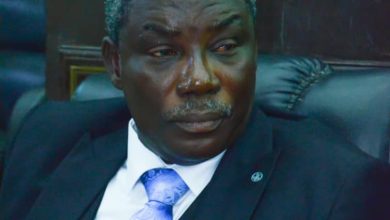
Appeal Court affirms election of Sule as Nasarawa state governor
The Court of Appeal sitting in Abuja, Federal Capital Territory (FCT) has affirmed the election of Abdullahi Sule as Nasarawa State governor, after overturning the earlier judgement of the election petition tribunal that removed him from office.
Penpushing reports that a three-member panel of the appeal court delivering judgement on the appeal filed by Sule held that the Nasarawa State Governorship Election Petition Tribunal was wrong to have declared David Ombugadu, the Governorship candidate of the Peoples Democratic Party (PDP), as the winner of the 18 March election.

The Independent National Electoral Commission (INEC) had earlier declared Sule of the All Progressives Congress (APC) the winner of the polls but Ombugadu challenged the election outcome at the tribunal, arguing that he won the majority of valid votes during the contest.
Penpushing further reports that the tribunal in a split decision on 2 October,2023, two members, forming the majority, declared Ombugadu the winner of the election, while the minority opinion of the only other member affirmed Sule’s victory, while Sule subsequently appealed against the majority decision of the tribunal.
The court of appeal led by Justice Uchechukwu Onyemenam deciding the Governor’s appeal on Thursday, held that Sule was validly elected as Nasarawa State governor, adding that Ombugadu failed to prove his allegation of over-voting levelled against Sule.

Penpushing also reports that Onyemenam, who read the lead decision of the court, said the tribunal was wrong to have concluded that Sule did not score a majority of the valid votes cast in the election.
The appellate court referencing Section 285(5) of the Nigerian constitution, and Section 132(7) of the Electoral Act 2022, and Paragraphs 4(5) (6) and 14(2) of the First Schedule to the Electoral Act, held that a petition must be filed alongside every written statement on oath within 21 days from the date of an election.
‘Where a trial court admitted and acted on illegally inadmissible evidence, it is the duty of the appellate court to ensure that such illegally inadmissible evidence is expunged. A court of law is only allowed to act on legally admissible evidence. If documents are unlawfully allowed by a trial court, the appellate court is duty-bound to exclude the documents and discountenance the evidence’, Onyemenam
Penpushing reports that consequently, the court struck out all the evidence and exhibits that were tendered before it by Ombugadu’s eight witnesses, noting that the evidence of the remaining 12 witnesses who testified for the Peoples Democratic Party (PDP) Governorship candidate was insufficient to prove Ombugadu’s allegations of electoral fraud against the Governor.
Meanwhile, the justice in addition faulted the tribunal’s deduction of 1,868 votes credited to Sule.
FOOTNOTE: You want to share story with us? You want to advertise with us? You need publicity for product, or service, or event? Contact us on WhatsApp +2348073463653 or email [email protected]






